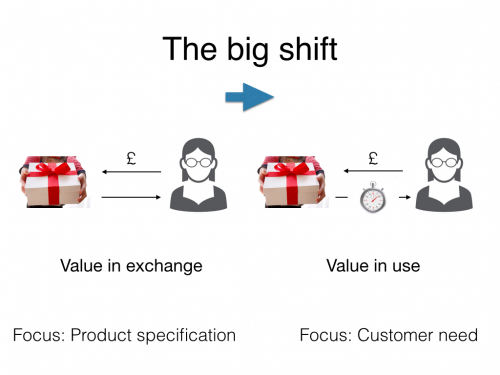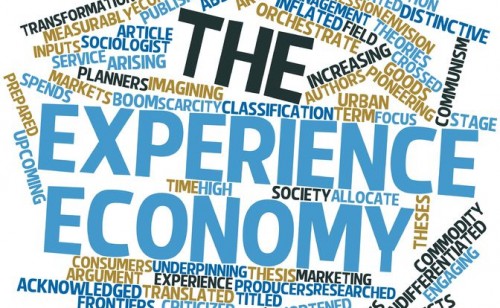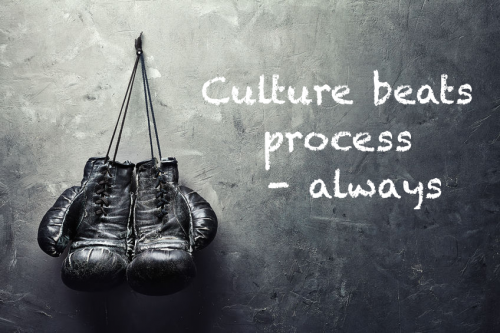This is the second post in a series on the new service economy. You will find the first post here.
Before we start dissecting what it actually means to create fantastic experiences and great services, I think it’s useful to take a step back and try to understand the big picture on how the world that we are operating in, as service providers, is changing quite dramatically.
There is a big shift taking place world-wide, and it is a shift that moves away from a focus on producing stuff to delivering services. It is also described as the move from a goods-dominate logic towards a service-dominate logic.
What that basically means is that for thousands of years, we have been used to creating value by taking something, adding to it, and then exchanging it with somebody else in return for their money. The focus has been on the functionality, the specifications, and the quality of the actual product. The better the specifications, the more money we have been able to obtain for that product.

What is happening now is a gradual shift away from a focus on products towards a focus on needs.
Recently I realized I needed go buy a new power drill in order to put a cupboard up on the wall. My old drill doesn’t work very well anymore because it has been lying at the bottom of my cupboard for the past ten years without being used. So, I decide to go get a better drill. But, do I really have a need for a drill? My next drill is probably also going to lie in the cupboard for a few years before I use it again. What I really need is two holes in a very hard wall. If somebody could provide those holes for me in a faster, easier way that would require less effort, less resources, or less trouble for me, I would grab that opportunity immediately.
If you are in the service industry, you may not have paid attention to this because, in the service industry, one has been, in a certain respect, in the service-dominate logic forever. But what is happening is that a lot of traditional manufacturers and producers are also moving away from their traditional goods-dominate logic, and instead they are thinking about how they can make that shift from product specifications to needs fulfillment.
In a service-dominate logic, the value is not created by a transfer of ownership, value is created in use. When I use your product or service, it brings value to me; and the minute I am not using it, it no longer provides value for me.
A great example of this is Mercedes-Benz, their smart car, and the service they have now created in more than 30 cities called “Car2Go”. You can grab the car off of the street with just your membership card and drive from A to B and then leave the car. Most of us living in big cities don’t need to own a car – in fact, it is a downright nuisance. What we do need is flexible transportation at our fingertips. There are lots of other examples of this new trend if you start looking around.
Why do I think this is important?
Because, what this means for the traditional part of the service industry is that more and more consumers are going to experience higher and higher levels of service. Great service is going to be the new normal.
And, that is going to raise the bar…the level of service expected across the board…is my prediction.
In my next blog post, we will examine the concept of value.

